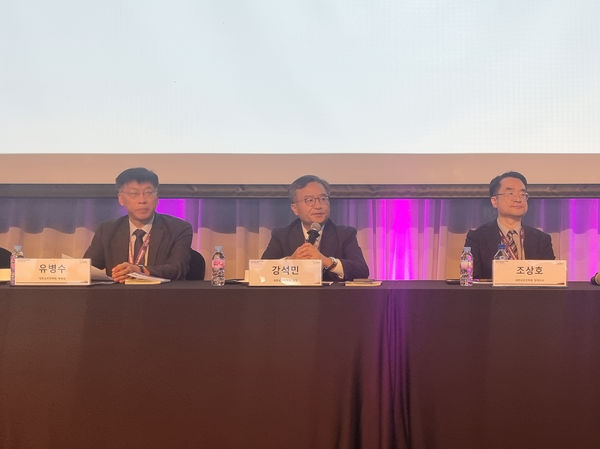The Korean Society of Heart Failure (KSHF) celebrated its 20th anniversary amid mounting calls from society members to reclassify heart failure as a severe illness.

Founded in 2003 as a research committee under the Korean Society of Cardiology, the KSHF was elevated to an independent society in March 2018.
"The society has made significant contributions not only academically through our International Journal of Heart Failure (IJHF) but also in advancing public awareness, publishing regular Heart Failure Factsheets', and conducting joint research initiatives," KSHF Chairman Kang Seok-min, who is also a Professor at the Severance Hospital's Department of Cardiology.
Kang stressed that despite the diligent efforts of KSHF over the past two decades, heart failure remains categorized as a general disease in Korea, resulting in insufficient attention, funding, and care for patients afflicted by it.
"According to the most recent Heart Failure Factsheet 2022, the cost of in-patient care for heart failure patients stood at an average of 8.5 million won ($6,364) per person, with the total healthcare expenditure surpassing 3.2 trillion won in 2020," Kang said. "Alarmingly, the prevalence rate for heart failure has witnessed a steady increase from 0.77 percent of the total Korean population of around 47.6 million in 2002 to 2.58 percent in 2020, translating to an estimated 1.3 million patients nationwide."
Kang emphasized the urgency of reevaluating heart failure's categorization, saying, "In an aging Korean society, the incidence of heart failure is projected to surge rapidly."
The KSHF Chairman stressed that addressing this growing concern requires the country to recognize heart failure as a severe medical condition and reallocate resources and attention accordingly.
KSHF Policy Director and Professor at Hallym University Sacred Heart Hospital Jo Sang-ho agreed.
"Heart failure is not a single disease, but a complex clinical syndrome," Jo said. "It is the final stage of heart disease caused by multiple causes and is on par with end-stage renal failure and end-stage sclerosis."
Jo emphasized that it is urgent to reclassify heart failure as a severe specialty disease as hospitals that treat many diseases classified as severe can receive financial support from the government, which can lead to more attention.
"The KSHF will do its best to reclassify heart failure as a serious disease through various activities such as academic advancement of heart failure, development of standard clinical guidelines for patient care, education of medical staff, and campaigns to raise public awareness of heart failure," Kang said.
Meanwhile, KSHF 20th annual scientific meeting, which was held in conjunction with the Heart Failure Association (HFA) of the European Society of Cardiology (ESC)/KSHF Clinical Trials in Heart Failure Course, featured various sessions on precision medicine for heart failure and discussions on various challenges and management strategies related to heart failure.
"A special session, CTC Asia, in collaboration with the HFA, will provide young Asian heart failure specialists an opportunity to expand their clinical trial design and execution capabilities," Kang said.

